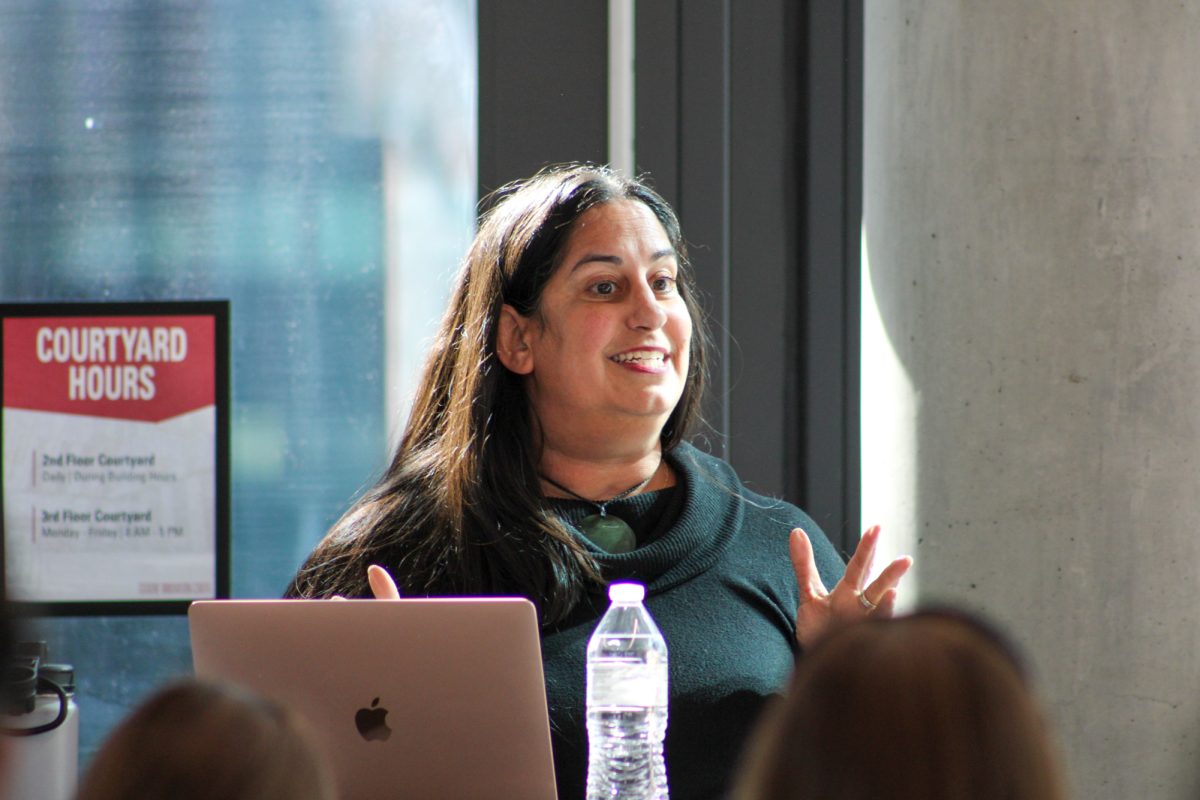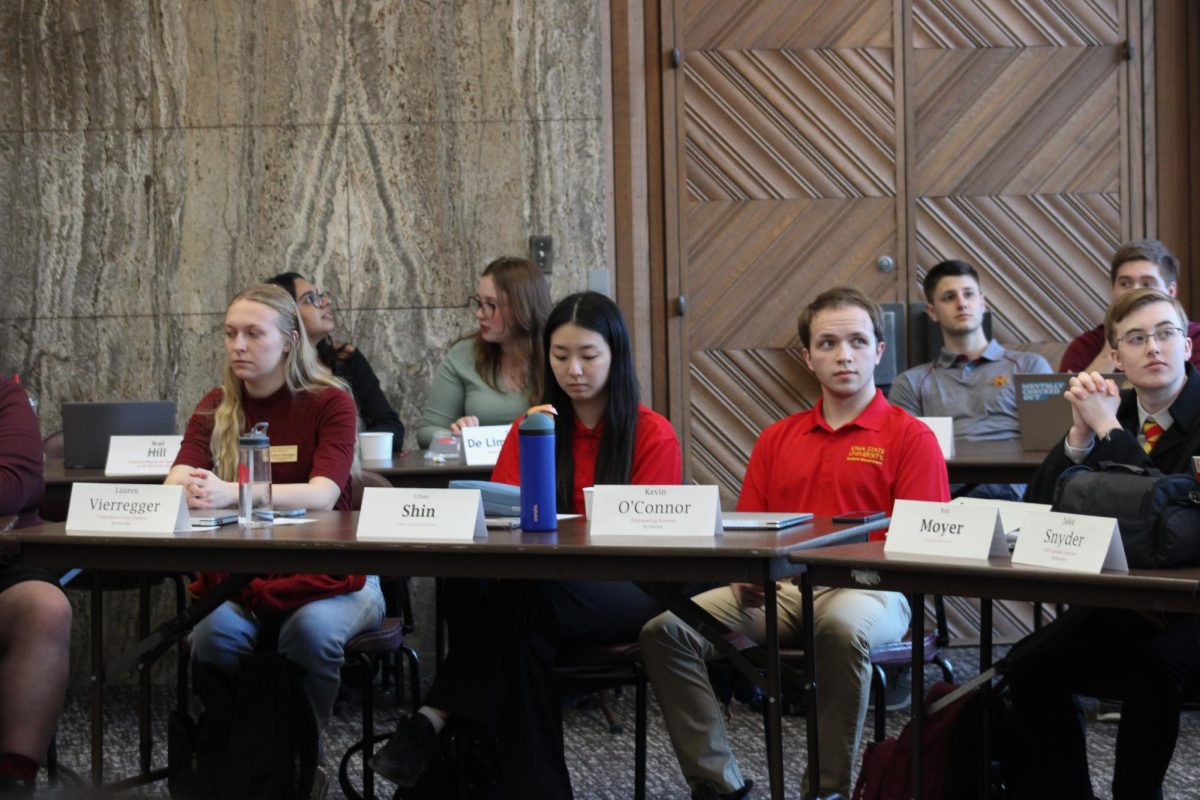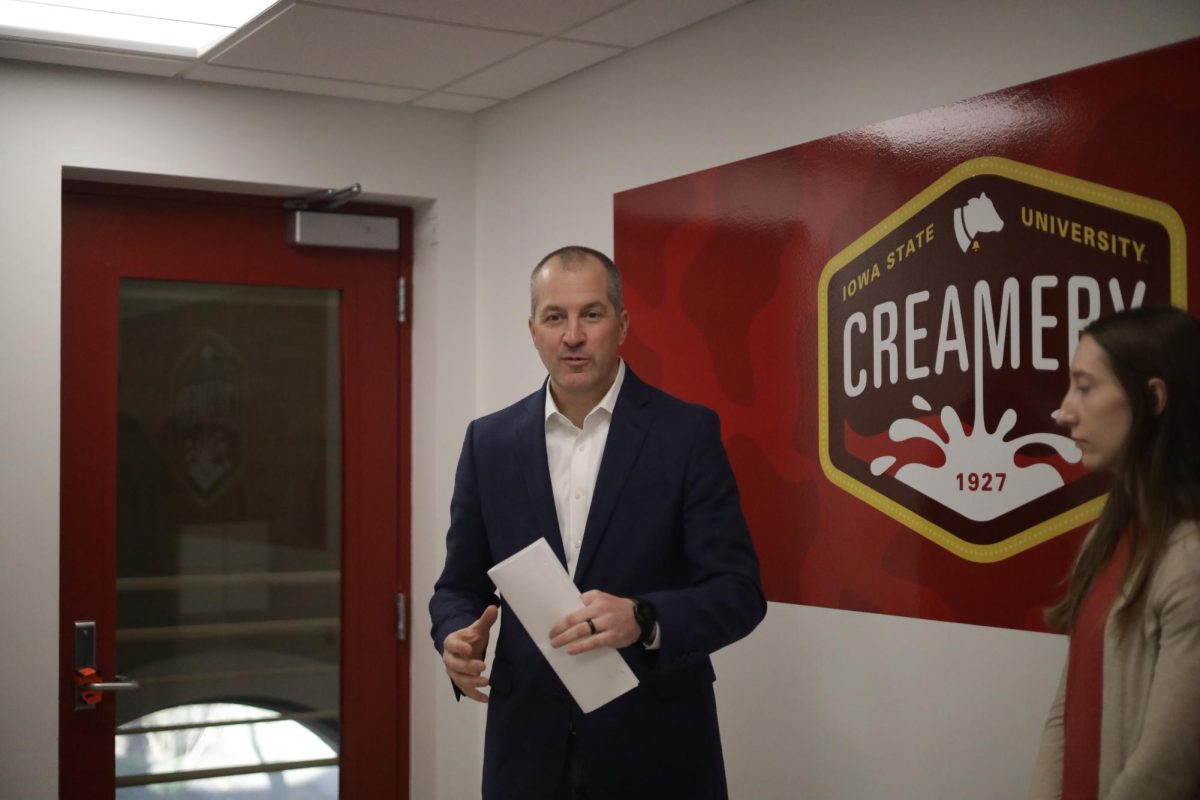Iowa State offers English course geared toward horticulture students
September 9, 2010
Some students think it is boring. Others view it as a waste of time and money. Some may even classify it as irrelevant to their major.
English 250 is a class that ISU students must take, regardless of their major, in order to graduate.
In an effort to make the class more interesting and relevant to students, Gail Nonnecke, professor of horticulture; Jenny Aune, senior lecturer in the English department; and Andrea Dinkelman, assistant professor and life sciences and vet med librarian, came up with a way to liven up the class.
A special section of English 250 is set aside for horticulture students who are members of the Horticulture Learning Community. The difference between this section and a regular section of the class is that all research projects and papers are centered around horticulture topics.
“It’s very exciting for horticulture to have this opportunity because students write about their discipline and learn about concepts in,” Nonnecke said.
Zack Sargent, sophomore in horticulture, took English 250 last semester. He was one of those students who did not see the relevance in taking the required English course.
“I viewed English 250 as just another gen ed that I had to take just to fulfill requirements, but if the class can be tailored to suit my interests, all the better,” Sargent said.
The class is offered once per academic year and a majority of the students who take it are majoring in horticulture. Other students enrolled in the College of Agriculture and Life Sciences may also take the course, though seats are first reserved for students in the horticulture learning community.
At the beginning of the semester Dinkelman visits the class and gives two presentations to the students regarding the resources available in the library and how to search for and evaluate sources while doing research.
“Regardless of where they go after Iowa State, they need the ability to research,” Dinkelman said. “It is a skill that is needed your whole life.”
Dinkelman advises students to evaluate sources based on four criteria-accuracy, currency, authenticity and purpose.
“Having a class librarian was really nice,” said Cailey Hinz, sophomore in horticulture. “What I really liked about it was that she set up a webpage for us that made it very simple to search for the academic resources that we needed.”
Students are given an assignment that helps them practice how to evaluate sources before beginning their own research.
Once that has been completed, students pick a research topic from a list of topics that deal with horticulture. Faculty members in the horticulture department came up with the list and every topic is related to research that at least one of the faculty members are involved in.
“I think students can always find something they’re interested in,” Nonnecke said.
Throughout the semester, the students write several drafts of their research paper and turn them in to be evaluated. Faculty members conducting research related to the topic of the students’ papers will assist in the evaluation process of the papers. The students are given the chance to correct or change parts of their research paper before it is given a final grade.
Aune, who teaches the class, said by giving the students multiple chances to correct their papers, they will gain a better understanding of how a research paper should be written.
“We don’t want to set them up for failure, and we want to make them feel like they own their paper,” Aune said.
At the end of the semester, the students take their completed research paper and turn it into a poster.
Aune said the poster project allows students to learn what a good visual presentation looks like. They learn what items need to be given more emphasis than others on the poster and how the information should be arranged.
The posters are presented at the last Department of Horticulture seminar at the end of the semester, where horticulture faculty members critique the posters and award prizes for the best ones.
Overall, students who have taken the course during the past five years seem to appreciate its set-up and are more motivated to learn.
“Basically, if you have an interest or are declared in a major that has a linked English course, go for it,” said Winston Beck, junior in horticulture. “I found it much easier to be engaged, I learned, and I retained a lot of information from the course.”






